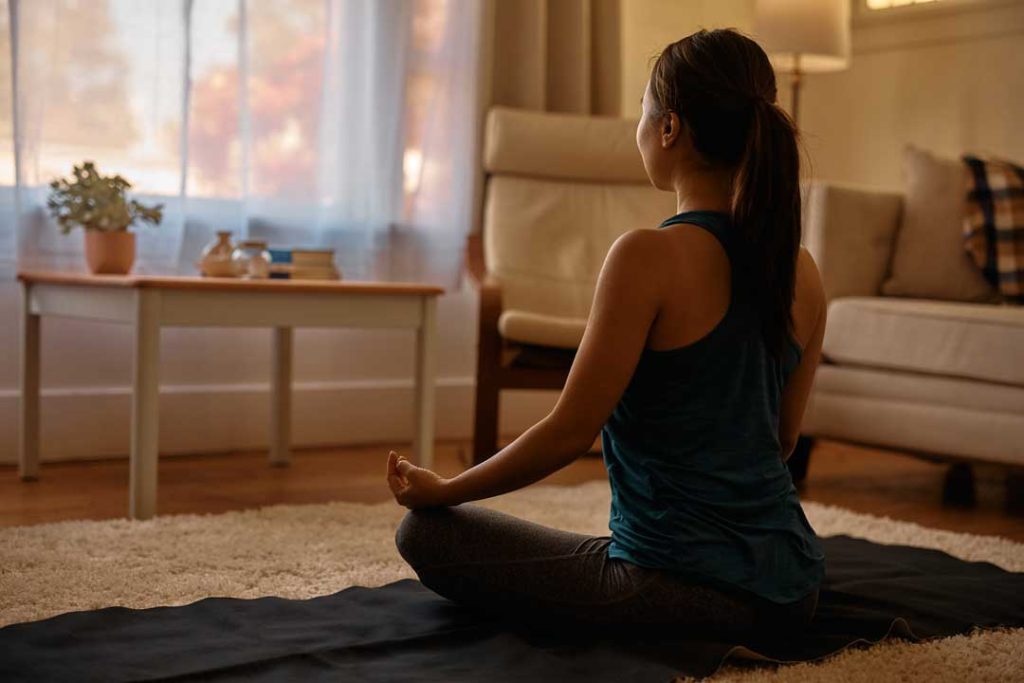Tired of staring at the ceiling? Discover effective ways to unwind for sleep and reclaim your restful nights.

Everyone knows the feeling. Staring at the ceiling with your thoughts racing, trying hard but failing to fall into restful slumber. Insomnia can turn your restful nights into challenging ordeals. Although sleep deprivation should never be taken lightly, there are ways you can take back your night and ease back into slumber.
If insomnia becomes an issue for you, we have some helpful strategies designed to relax, unwind, clear your mind, and return you back into sweet dream land.
Sleep Better: Unwinding Techniques for Insomnia
The frustrating reality of insomnia is a shared experience for many, turning the desire for peaceful slumber into a nightly battle. While chronic sleep deprivation warrants professional attention, there are several accessible ways to unwind for sleep that can help ease you back into restful nights.
This guide offers simple yet effective strategies to relax your mind and body, clear racing thoughts, and pave the way for sweet dreams.
Create a Relaxing Bedtime Routine
Our brains thrive on routines, and creating a relaxing nighttime ritual can do wonders for signaling your mind and body that it is time for sleep. Begin your personal “wind-down ritual” by dimming lights about an hour before bed to simulate natural sun-lowering.

Turn off electronics like smartphones and televisions, and engage in relaxing activities like reading a book or journaling.
You might even try adding lavender aromatherapy oil to your body cream when you lotion up at night. These small steps can ease transition from the chaos of your daily activities back into a peaceful sleep time.
Tame the Overactive Mind with Mindfulness Techniques
Does your mind seem to choose an inappropriate moment from the past decade to replay at bedtime? Welcome to the club. Mindfulness and relaxation techniques can be great tools in helping to calm it.

Practices such as deep breathing, progressive muscle relaxation and meditation can help calm a racing mind and ground you in the present moment. Even five-minute deep breathing exercises can significantly lower stress levels.
Yoga Nidra (sometimes referred to as “yogic sleep”) can provide profoundly relaxing effects. Apps like Calm and Headspace offer meditations specifically tailored for sleep. Just make sure not to get distracted by other phone notifications.
Improve Your Sleep Environment
Your sleep environment plays a big role in how quickly and deeply you sleep, from temperature and noise pollution to lighting effects. A perfect sleeping space should feature three elements, which is coolness, quietness, and darkness for the best results.
If light tends to creep in and bother you, blackout curtains or an eye mask are great tools for eliminating light intrusions. A white noise machine or soothing sounds can help drown out disruptive sounds like barking dogs from neighbors and traffic noise, among others.

And don’t forget your bed. Finding bedding that supports comfort makes a world of difference. After all, no one deserves something that feels like a medieval torture device.
Be Mindful of What You Eat and Drink
Your eating and drinking choices could make or break your nighttime routine. Although everyone enjoys late-night snacking, too much heavy meals, caffeine, or alcohol before bedtime can put unnecessary strain on your system and keep you awake longer.

For an evening pick-me-up snack that won’t interfere with sleep quality like bananas and almonds are best. Herbal teas like chamomile, peppermint, or valerian root also offer natural relaxation benefits without using caffeine.
Consider Vaping Calmly
For those suffering from occasional insomnia, vaping may provide an effective means of relaxing before bed. Many find that opting for flavor combinations containing natural herbs or non-caffeine options can have a soothing effect that helps promote relaxation.
By browsing vapes online, you can explore a wide selection of vape products designed specifically to enhance relaxation and reduce stress, making the transition to restful states more straightforward. It is important that high-quality products be selected and professional advice sought if necessary to ensure this method aligns with overall wellness goals.
Unwind with Online Pool
For those struggling with insomnia, playing an online pool game may be an amazingly effective way to relax and shift focus.

The soothing yet engaging nature of pool can help clear away your racing thoughts while being a low-pressure activity that doesn’t overstimulate.
Thus making it an excellent way to wind down late at night.
Don’t Become A Clock-Watcher
One of the easiest traps of insomnia can be falling into a vicious clock-watching cycle, in which staring at the clock while trying to calculate how much rest you might miss if you fall asleep “now”. This only amps up your anxiety.

Try turning away from viewing your alarm clock or phone so as not to become drawn in by watching it’s time display constantly. Instead accept the fact that sleep will come naturally at its own time.
Move Around, But Not Too Late
Exercise can be an important element of good sleep hygiene. Exercise helps regulate your circadian rhythm and tire your body out naturally. But timing matters.
For the best results, complete your workout as early as possible in the day. Too close to bedtime, and it might even cause you to stay alert rather than helping you relax for quality rest.

A morning walk, midday run, or early evening yoga class could all contribute towards higher-quality rest later on.
Beat Insomnia: Your Guide to a Calm Night
Combating insomnia should not involve devising overly complicated solutions but more about creating simple habits that set you up for a good night’s sleep. Don’t chase after it.
Create an environment and lifestyle where it comes naturally instead. Restful nights might only require minor adjustments, and soon counting sheep will become obsolete.
Finding relief from insomnia doesn’t require complex solutions but rather the consistent implementation of simple, unwinding habits.
By creating a relaxing bedtime routine, taming your mind, optimizing your sleep environment, being mindful of your diet, and engaging in calming activities, you can cultivate an environment conducive to natural sleep.
Embrace these ways to unwind for sleep, and soon those restless nights may become a thing of the past.

Jessi is the creative mind behind The Coffee Mom, a popular blog that combines parenting advice, travel tips, and a love for all things Disney. As a trusted Disney influencer and passionate storyteller, Jessi’s authentic insights and relatable content resonate with readers worldwide.



